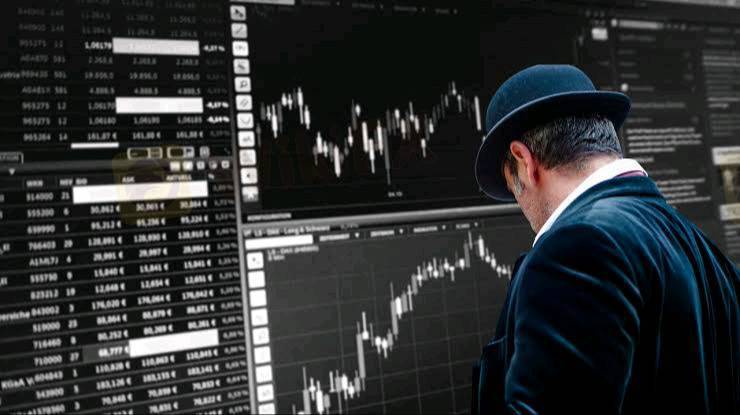
2025-01-30 05:32
IndustriyaTheoretical Perspectives on Geopolitical Risk
#firstdealofthenewyearFateema
Geopolitical risk is a critical factor influencing financial markets, including foreign exchange (forex) and oil prices. This post explores the theoretical perspectives on geopolitical risk and market reactions, offering a foundation for understanding the complex dynamics at play.
Defining Geopolitical Risk
Geopolitical risk refers to the potential adverse effects of political, social, or economic events on the stability and performance of financial markets. This risk is often categorized into three main dimensions:
International relations: Political or military conflicts between nations, sanctions, and diplomatic tensions can all contribute to geopolitical risk.
Domestic politics: Internal political instability, regime changes, or social unrest can also introduce uncertainties and risks.
Economic policies: Government decisions on fiscal or monetary policies, trade agreements, or regulatory changes can create uncertainties that influence market dynamics.
Theoretical Frameworks for Understanding Market Reactions
Several theoretical frameworks help shed light on how geopolitical risk influences forex and oil markets:
Risk aversion theory: This theory posits that investors become more risk-averse during periods of heightened geopolitical risk, causing them to shift their investments toward safe-haven assets and away from riskier ones.
Efficient market hypothesis: According to this hypothesis, markets rapidly incorporate all publicly available information, including geopolitical events, into asset prices. As a result, traders cannot consistently outperform the market based on such information.
Herding behavior and market sentiment: Some researchers argue that traders' emotional responses to geopolitical events and their tendency to follow the crowd can lead to market overreactions and price fluctuations.
The Interplay between Geopolitical Risk and Market Behavior
Geopolitical risk can influence market behavior through several channels:
Risk premium: As geopolitical risk rises, investors may demand a higher return on their investments to compensate for the increased uncertainty. This can affect asset prices and exchange rates.
Capital flows: Political instability or conflict can lead to capital flight, as investors move their money to safer locations, impacting forex markets.
Economic growth: Geopolitical risk can dampen economic growth, particularly in affected regions, which may lead to reduced demand for oil and other commodities.
Geopolitical risk plays a significant role in shaping market behavior and influencing forex and oil prices. Understanding the theoretical perspectives on this phenomenon can help traders, investors, and policymakers anticipate and respond to the challenges posed by geopolitical events. Throughout the upcoming case studies, we will examine real-world examples of these dynamics and their implications for financial markets.
Katulad 0
FX1153847518
Trader
Mainit na nilalaman
Pagsusuri ng merkado
Dogecoin cheers coinbase listing as Bitcoin’s range play continues
Pagsusuri ng merkado
Grayscale commits to converting GBTC into Bitcoin ETF:
Pagsusuri ng merkado
Bitcoin's price is not the only number going up
Pagsusuri ng merkado
Theta Price Prediction:
Pagsusuri ng merkado
How to Research Stocks:
Pagsusuri ng merkado
Bitcoin (BTC), Ethereum (ETH) Forecast:
Kategorya ng forum

Plataporma

Eksibisyon

Ahente

pangangalap

EA

Industriya

Merkado

talatuntunan
Theoretical Perspectives on Geopolitical Risk
 Bangladesh | 2025-01-30 05:32
Bangladesh | 2025-01-30 05:32#firstdealofthenewyearFateema
Geopolitical risk is a critical factor influencing financial markets, including foreign exchange (forex) and oil prices. This post explores the theoretical perspectives on geopolitical risk and market reactions, offering a foundation for understanding the complex dynamics at play.
Defining Geopolitical Risk
Geopolitical risk refers to the potential adverse effects of political, social, or economic events on the stability and performance of financial markets. This risk is often categorized into three main dimensions:
International relations: Political or military conflicts between nations, sanctions, and diplomatic tensions can all contribute to geopolitical risk.
Domestic politics: Internal political instability, regime changes, or social unrest can also introduce uncertainties and risks.
Economic policies: Government decisions on fiscal or monetary policies, trade agreements, or regulatory changes can create uncertainties that influence market dynamics.
Theoretical Frameworks for Understanding Market Reactions
Several theoretical frameworks help shed light on how geopolitical risk influences forex and oil markets:
Risk aversion theory: This theory posits that investors become more risk-averse during periods of heightened geopolitical risk, causing them to shift their investments toward safe-haven assets and away from riskier ones.
Efficient market hypothesis: According to this hypothesis, markets rapidly incorporate all publicly available information, including geopolitical events, into asset prices. As a result, traders cannot consistently outperform the market based on such information.
Herding behavior and market sentiment: Some researchers argue that traders' emotional responses to geopolitical events and their tendency to follow the crowd can lead to market overreactions and price fluctuations.
The Interplay between Geopolitical Risk and Market Behavior
Geopolitical risk can influence market behavior through several channels:
Risk premium: As geopolitical risk rises, investors may demand a higher return on their investments to compensate for the increased uncertainty. This can affect asset prices and exchange rates.
Capital flows: Political instability or conflict can lead to capital flight, as investors move their money to safer locations, impacting forex markets.
Economic growth: Geopolitical risk can dampen economic growth, particularly in affected regions, which may lead to reduced demand for oil and other commodities.
Geopolitical risk plays a significant role in shaping market behavior and influencing forex and oil prices. Understanding the theoretical perspectives on this phenomenon can help traders, investors, and policymakers anticipate and respond to the challenges posed by geopolitical events. Throughout the upcoming case studies, we will examine real-world examples of these dynamics and their implications for financial markets.
Katulad 0
Gusto kong magkomento din
Ipasa
0Mga komento

Wala pang komento. Gawin ang una.

Ipasa
Wala pang komento. Gawin ang una.